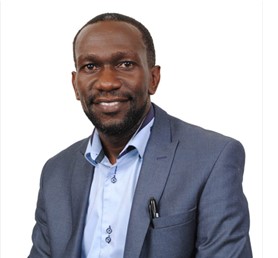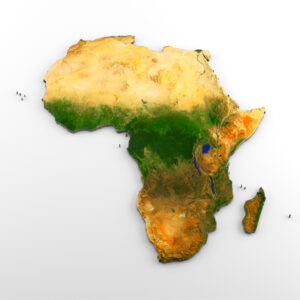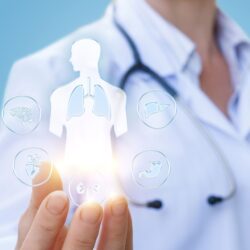Clinical Researcher—June 2020 (Volume 34, Issue 6)
SCIENCE & SOCIETY
Al O. Pacino; Yonnie Otieno
During these times of international efforts to reduce COVID-19 cases, noticeable systems put in place and plans enacted throughout Africa have successfully pre-empted the virus from uncontrollably spreading. Scientific and healthcare organizations, governments, as well as biotechnology companies have established a cooperative presence on the continent that has led to increased stability in the region.
Africa’s preparedness in containing the spread of COVID-19 is currently determined by several factors. So far, the focus has been on the continent’s weak health infrastructure and systems. However, the region’s strength is in the growing digital technology transformation and in cross-sectoral collaboration within health and research. These strategic developments are what informs the kinds of health training practices, patient care, and policy matters that are often largely ignored by many.
There has been a worldwide focus on the development of diagnostics, vaccines, and drugs for SARS-CoV-2 (the virus which causes the COVID-19 disease). In this context, it is important to emphasis that African scientists are connected with institutions of excellence in leading, ground-breaking technological advancements already under way in Africa—through both a collaborative network and through ties with many individual institutions and stakeholders.
Several research institutions are doubling their digital application use in several emerging health technologies and cloud applications services to share and exchange information on SARS-CoV-2. More than six years ago, during the Ebola epidemic in 2014, the flow of scientific information and data varied due to inconsistent and inaccurate reports using technology that was under-serviced in West African countries.
Recent developments that have impacted technological implementation include the Personal Data Protection Guidelines for Africa announced in 2018.{1} The guidelines were reflected in the European Union’s enactment of the General Data Protection Regulation (GDPR), which outlines the ownership of an individual’s right to their personal information.{2} The guiding principle for the guidelines convey the importance of data management for every subject’s protection of member countries to safely use GDPR-compliant applications and protection systems.
Such regulations are becoming key to modernizing health and research institutions for digital advancements. The aim is to make sure that Africa countries can effectively benefit from the application of safety protections and use of digital technology systems. The importance of this is increasing as many countries are becoming equipped for groundbreaking research using data systems, software applications, mobile health apps, cloud-based infrastructure, telemedicine, and artificial intelligence.
Sharing Important Breakthroughs
Less than a week after the first confirmed case of COVID-19 in Africa, local scientists reported details on open source databases for SARS-CoV-2 from Africa. The data were immediately available for use by the global scientific community and the World Health Organization (WHO). By March 1, 2020, cases of COVID-19 were being reported in record turnaround time, almost instantaneously, with accuracy in analysis consistent with the travel history of the infected person who entered Africa either from Europe or the United States.
The application of collaborative efforts by several institutions, non-governmental organizations, biopharma stakeholders, governments, and public benefit organizations is what led to this successful outcome, unlike what happened during the 2014 Ebola epidemic, when obtaining such information in real-time via electronic tools in Africa was a monumental challenge.
The establishment of many national public health institutions connected to national electronic data capture systems created centralized health data for most local governments. The plan and support put in motion by the WHO was known as the District Health Information Software 2 (DHIS2), which is currently used in 47 countries.{3} The initiative incentivized regional activity and implementation of digital revolutions which shared disease information at a global scale never witnessed before.
These advances mark a significant change over the past seven years. For instance, in the early stages of the Ebola outbreak in Liberia and Sierra Leone, these countries did not have national electronic reporting systems. The sharing of health information and tracking of the exact number of cases affected by Ebola was made extremely difficult. The limited availability of up-to-date information meant the countries could only estimate the number of those who died or survived during the epidemic.
Conclusion
A major lesson to be learned from the in-depth planning that has taken place throughout Africa as a result of the COVID-19 crisis is that institutional and international market cooperation is needed. By developing detailed pathways for national and international infrastructure to equip sites and other industry stakeholders with broad connectivity, we can increase the confidence of a nation’s public health system.
Taking steps to ensure countries are updated on recent privacy and compliance laws and providing the proper connective tools are necessary to improve accountability and safety. By embracing an interconnected future, we will empower research professionals to quickly share their findings while respecting the modern-day standards of privacy and security.
References
- https://etradeforall.org/internet-society-african-union-commission-unveil-guidelines-on-personal-data-protection/
- https://gdpr-info.eu/
- https://www.dhis2.org/

Al O. Pacino is President at BlueCloud® by HealthCarePoint Professional Collaborative Networks, based in Cedar Park, Texas, and a former member of the Editorial Advisory Board for ACRP.

Yonnie Otieno, guest contributor, is a Manager at BlueCloud® Africa by HealthCarePoint Professional Collaborative Networks, based in Nairobi, Kenya.



